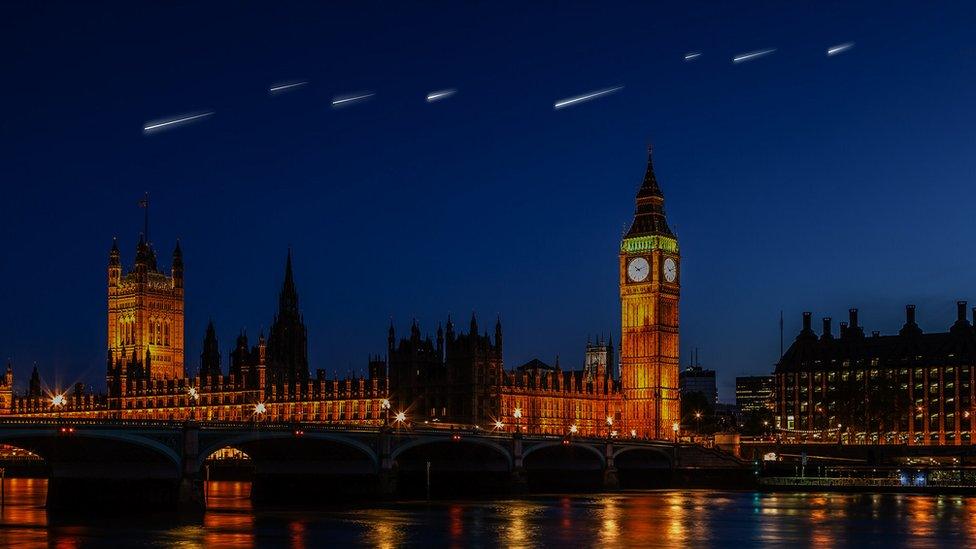'Drown in stars' during meteor shower - astronomer
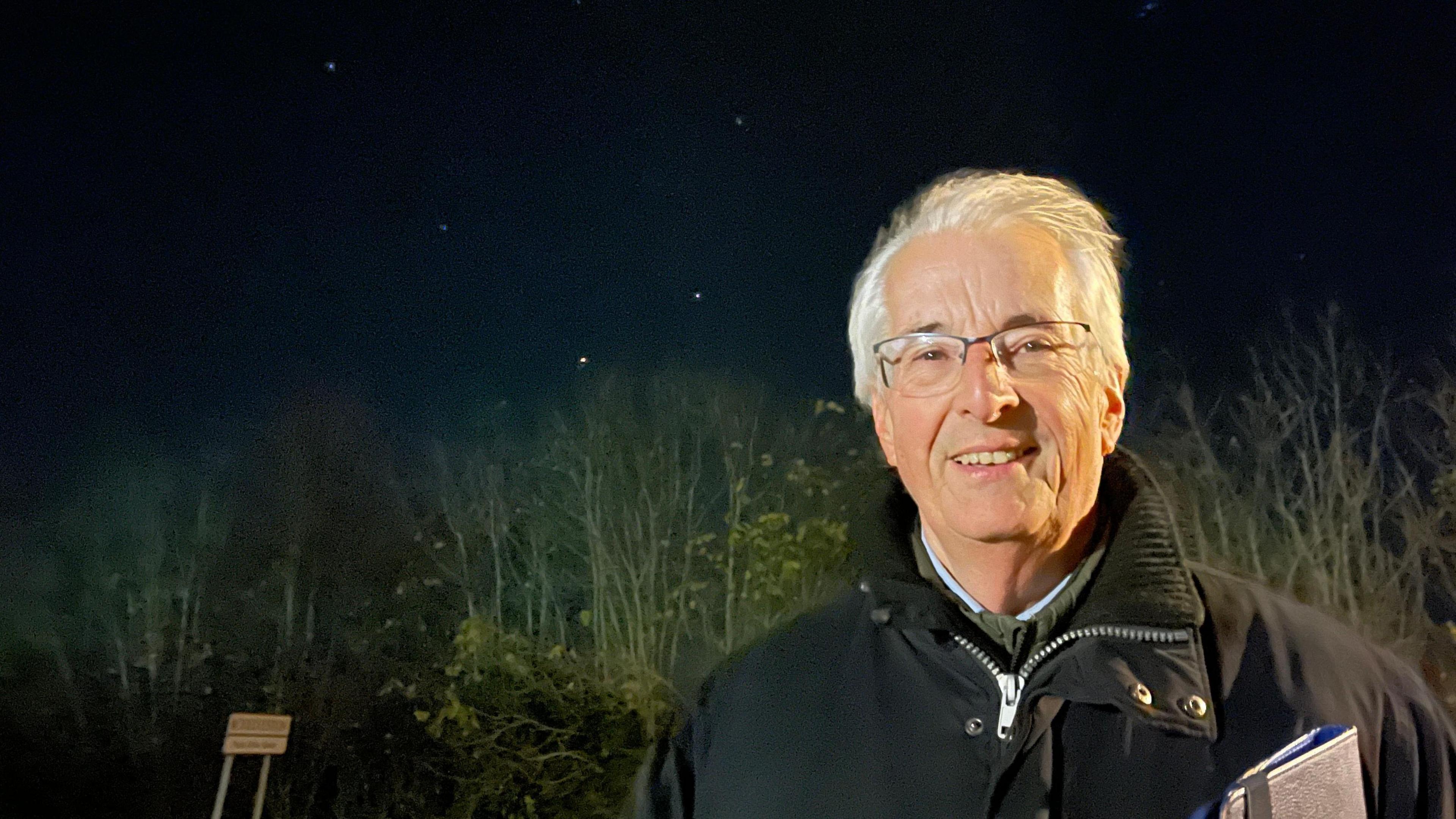
Astronomer Nick Hewitt says the Geminid meteor shower is one of the best shooting star shows of the year
- Published
An astronomer has said a dazzling meteor shower set to light up the sky on Saturday night is an opportunity to "drown in stars".
The yearly event known as the Geminid meteor shower - where shooting stars appear in the night sky - is active from 4 to 20 December, and peaks on 14 December.
Northamptonshire astronomer Nick Hewitt hopes it will inspire more people to discover the wonder of a night sky.
"I think there's endless fascination - we've learnt so much over the last few hundred years and there's always something up there that's going to surprise us," he said.
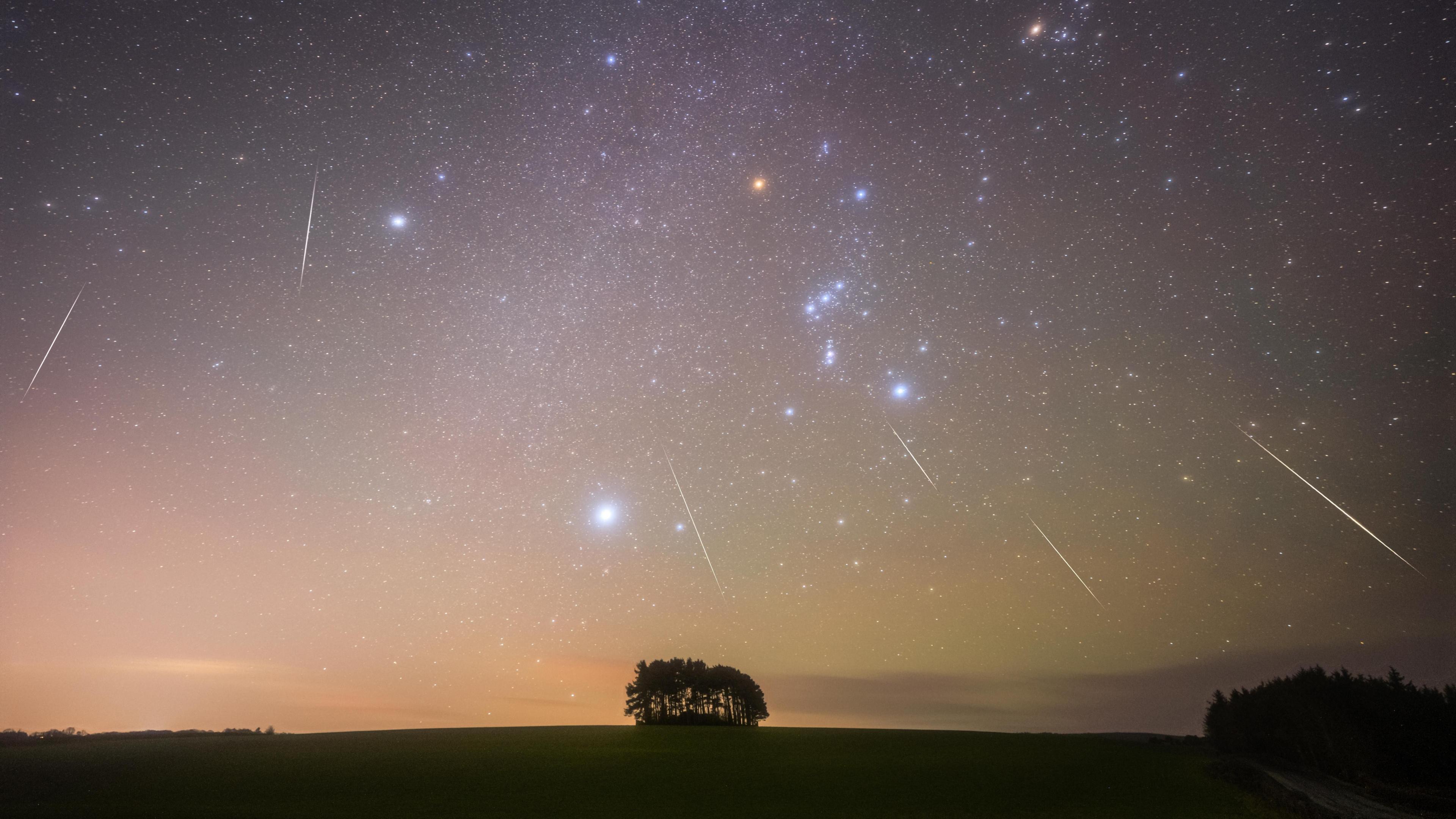
Going to a dark-sky area, where there is little light pollution, will increase your chances of seeing shooting stars
Meteors are pieces of debris ranging from the size of a grain of sand to a pea that enter our planet's atmosphere and vaporise, producing a bright streak of light that is commonly known as a shooting star.
In areas where there is little light pollution, they can be seen with the naked eye.
Top tips for stargazing
Wrap up warm
Turn off all the lights around you
Be patient - it might take a little while to see something special
You'll need to wait for a bit for your eyes to adjust to the darkness
What else can you see? Write down your observations
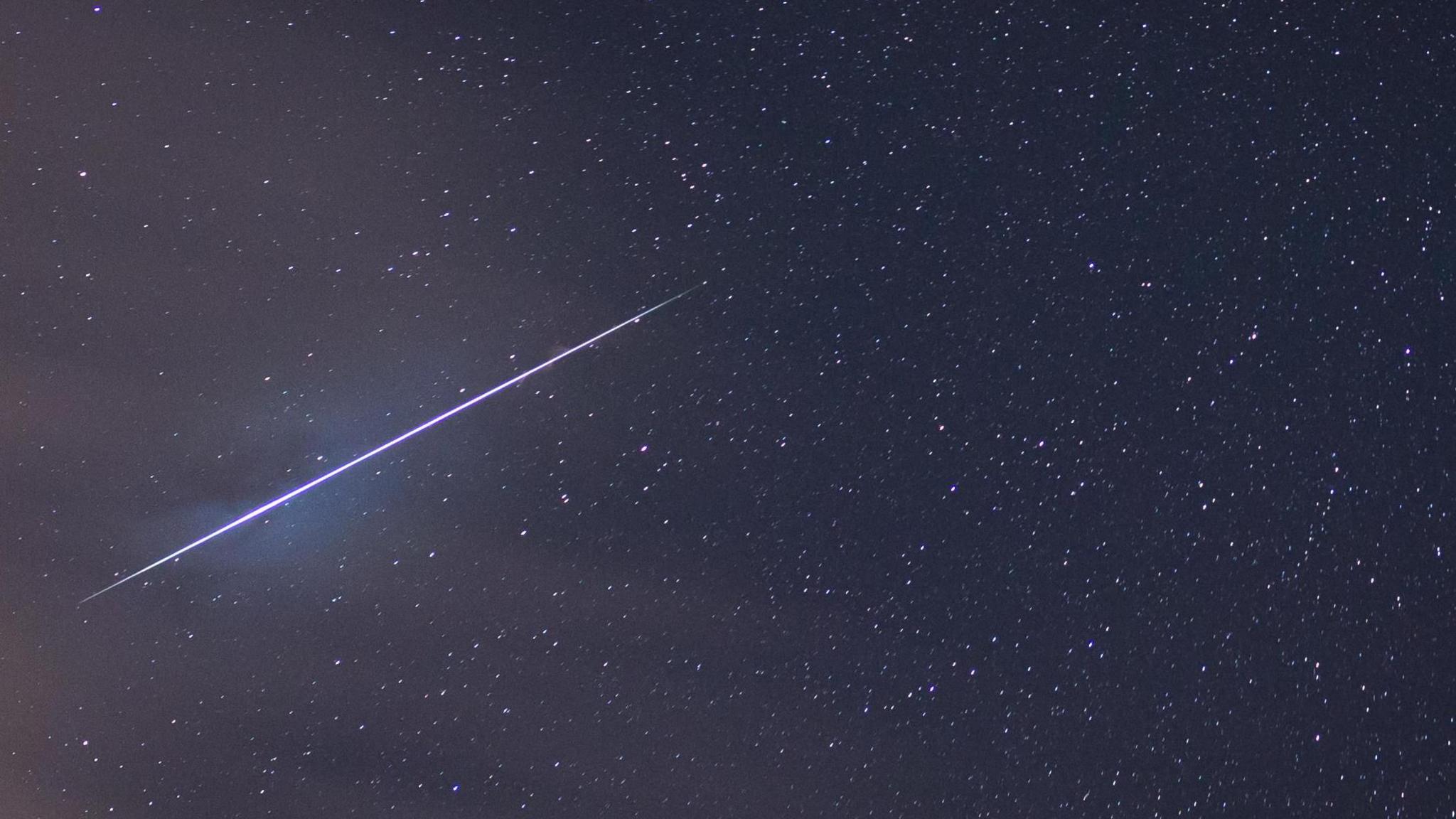
During the peak of the Geminid meteor shower up to 150 meteors, which vary in colour, are expected to be visible
To find dark-sky locations in Northamptonshire "you don't have to go too far out of urban areas", according to Mr Hewitt.
"A little to the west of Towcester is very good, as well as rural areas surrounding Raunds.
"On a clear night, you might even be able to see the milky way on the outskirts of urban areas such as Northampton.
"Seeing the milky way in all its glory is a beautiful, beautiful thing to see."
During the peak of the Geminid meteor shower, up to 150 meteors are expected to be visible.
It is a particularly beautiful meteor shower because the meteors vary in colour, including white, yellow, green, red and blue.
The best way to enjoy the shooting star show, Mr Hewitt advises, is to give your eyes 10 to 15 minutes to adjust.
"Once you get your eye in, you can start to see the subtle colours of the stars," he said.
The wonder of the night sky, he added, is one of the "greatest things you can experience. It is a bit addictive".
Asked whether he's ever seen a UFO in the sky above Northamptonshire, Mr Hewitt said: "I thought I had once, but it wasn't. It was the end of a rocket."
To learn more about the night sky, he recommends attending one of the astronomy talks held by the Northamptonshire Natural History Society.
"Learn your constellations, work out where the planets are and then buy yourself a pair of binoculars. Drown in stars, it's lovely."
Get in touch
Do you have a story suggestion for Northamptonshire?
Follow Northamptonshire news on BBC Sounds, Facebook, external, Instagram, external and X, external.
- Published12 December 2024
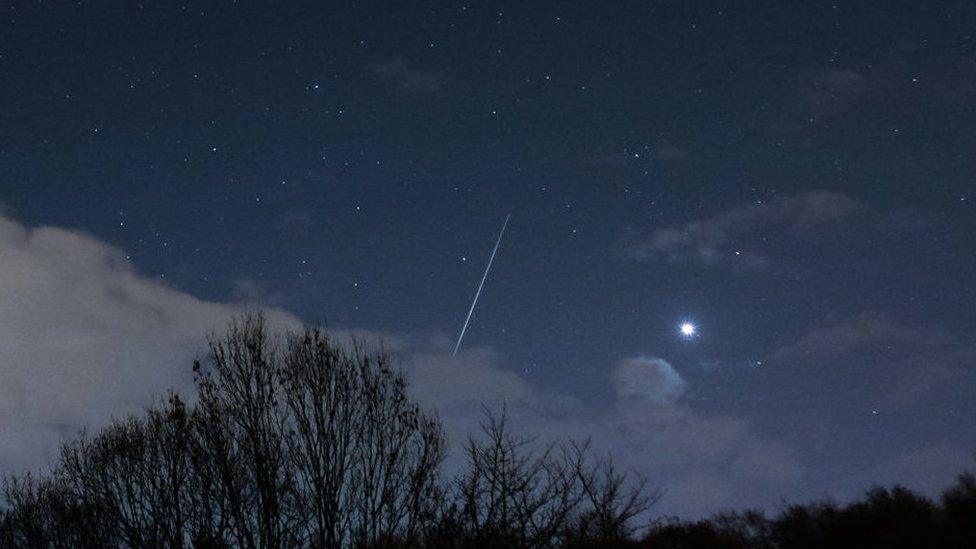
- Published3 April 2023
